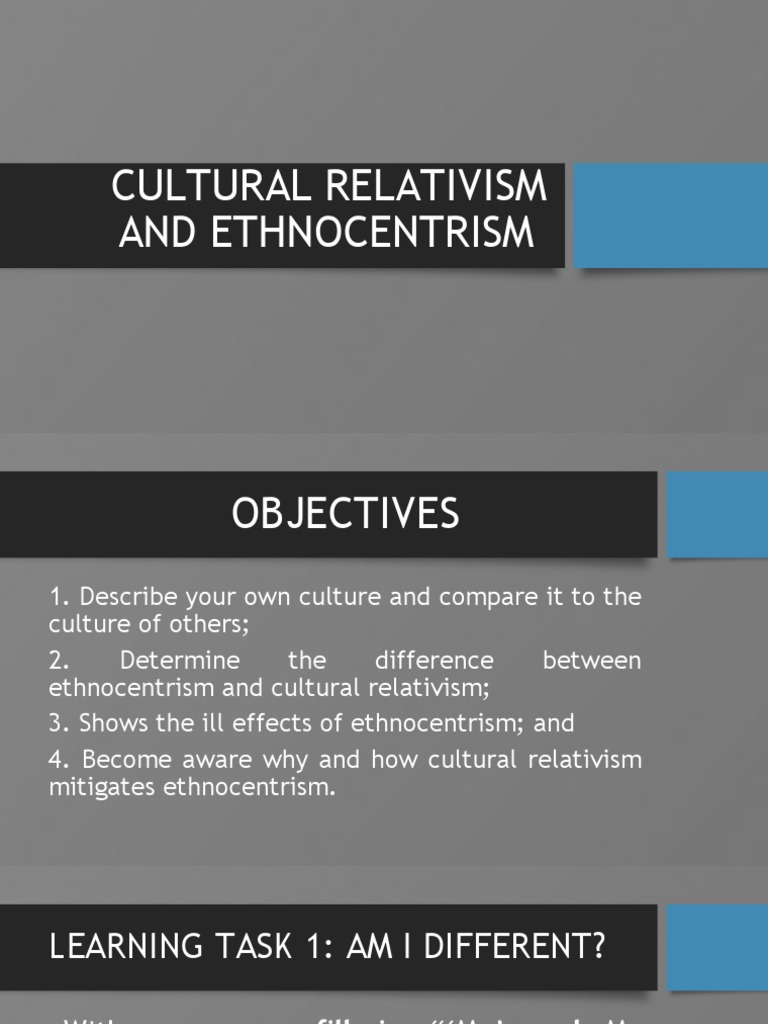Cultural Relativism and Ethnocentrism: A Comparative Analysis
In an increasingly globalized world, understanding the frameworks of cultural relativism and ethnocentrism is paramount for fostering tolerance and cooperation among diverse populations. These two concepts, while fundamentally different in their perspectives, act as critical lenses through which we can examine human behavior, societal norms, and the vast tapestry of cultural expressions that shape human existence.
Understanding Cultural Relativism
Cultural relativism is the principle that an individual’s beliefs and activities should be understood based on that individual’s own culture, rather than be judged against the criteria of another culture. Rooted in anthropological research, this paradigm argues that no culture is superior to another, and each cultural practice has its own unique context and meaning. This approach encourages individuals to appreciate diversity and promotes a deeper understanding of global complexities.
One of the key strengths of cultural relativism lies in its promise to shift perspectives. It nudges individuals to step beyond their own cultural milieu and engage with the practices, values, and beliefs of others without bias. For instance, viewing marriage customs worldwide through a culturally relativistic lens allows one to appreciate how rituals vary dramatically; what may seem unusual or foreign from one cultural standpoint can reveal profound significance from another.
Moreover, cultural relativism invites curiosity. It fosters an inclination to question preconceived notions and stereotypes. By embracing this mindset, a person’s worldview expands, paving the way for empathy and greater intercultural dialogue. It allows for richer discussions that honor differences instead of dismissing them, thus promoting a spirit of understanding and cohabitation across disparate societies.
Ethnocentrism Defined
In stark contrast stands ethnocentrism, the belief that one’s own culture is the standard by which all cultures should be evaluated. This perspective often leads to the interpretation of cultural differences as deficiencies, engendering an implicit hierarchy where one culture is deemed superior. Ethnocentrism is characterized by a tendency to view one’s own cultural norms as the most valid, often resulting in xenophobia or cultural insensitivity.
This viewpoint can engender strife, fostering isolationism and conflict. For instance, in the realm of international relations, ethnocentric attitudes may lead to the devaluation of foreign policies or practices that do not align with a nation’s own values. Rather than seeking to understand or appreciate differences, such an outlook breeds contempt and misunderstanding—effects that can have debilitating consequences on diplomatic endeavors.
Intriguingly, ethnocentrism may offer a semblance of community identity. By establishing a clear delineation between “us” and “them,” it provides a sense of belonging to a group. However, this sense of unity derived from ethnocentrism is intrinsically flawed, as it often leads to exclusion and a fortified sense of isolation rather than genuine connection among cultures.
Comparative Analysis
Cultural relativism and ethnocentrism represent divergent approaches to understanding cultural diversity. While cultural relativism emphasizes understanding and acceptance, ethnocentrism fosters a narrow lens through which cultures are judged. The fundamental divergence between these ideologies resides in their impact on human interactions. Cultural relativism advances a more nuanced comprehension of others, while ethnocentrism often results in misunderstanding and cultural imperialism.
One of the most pronounced differences is their respective implications for social cohesion. Cultural relativism promotes inclusivity, recognizing that distinct practices contribute to a richer collective human experience. It upholds the notion of interconnectedness among cultures, suggesting that learning from one another paves the way for collective advancement. In contrast, ethnocentrism can erode the fabric of social cohesion by erecting barriers that inhibit open communication and mutual respect.
Furthermore, cultural relativism nurtures adaptability. In an era of rapid globalization, the ability to engage with a variety of cultures is invaluable. Businesses operating in diverse markets draw from cultural relativism to tailor their products and messaging to fit local sensibilities. Conversely, enterprises mired in ethnocentric paradigms risk alienating potential customers and partners by failing to recognize the diversity of cultural preferences.
Bridging the Divide
Given the complexities that surface from the interplay between cultural relativism and ethnocentrism, the challenge remains to find a bridge that reconciles these two perspectives. Recognizing the merit in both approaches may unlock pathways to create a balanced cultural dialogue. Advocacy for cultural relativism should not dismiss the unique aspects of one’s heritage; instead, it should promote an understanding that awareness of one’s background can coexist with appreciation for others. In this era of ecological crises and global challenges, collaboration beyond cultural borders is crucial, urging a collective response rooted in empathy and understanding.
Ultimately, a commitment to cultural relativism, while remaining cognizant of ethnocentric tendencies, offers a way forward in fostering a more harmonious and interconnected global society. It beckons a call for introspection and dialogue, challenging individuals to transcend traditional boundaries that inhibit human connection, and instead embrace the myriad of cultures that contribute to the complexity and richness of our shared human experience.
